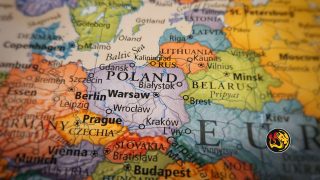
by Stefan J. Bos, Worthy News Europe Bureau Chief
WARSAW/BUDAPEST (Worthy News) – Poland’s President Karol Nawrocki says his country “will not succumb to the terror of rainbow rulings” after the European Union’s highest court ruled that Poland and other member states that ban same-sex marriages must recognize such partnerships if they were “lawfully concluded in another member state.”
However, “There is a very high risk that this is a very dangerous precedent that will seek to impose rainbow marriages on Poles … which will completely destroy the family,” the president’s office stressed.
Poland faced a fresh confrontation with European institutions this week after the European Court of Justice (ECJ) on Tuesday ordered nations with constitutional bans on same-sex marriage to recognize such unions when contracted abroad.
The decision, one of the most far-reaching in recent years, intensified ideological tensions already straining relations between Brussels and conservative-led Central European governments.
The ruling followed a case involving two Polish men who married in Germany in 2018, only to have their marriage rejected upon returning to Poland. The ECJ ruled on November 25 that while member states may define marriage in their own laws, they must still comply with EU obligations — including free-movement protections — by recognizing marriages performed elsewhere.
MARRIAGE RECOGNITION DISPUTE
Poland’s justice minister confirmed that the ruling will be implemented, but officials close to President Nawrocki condemned the judgment as an overreach. Deputy chief of staff Adam Andruszkiewicz accused Brussels of attempting to impose “social engineering” and bypass the Polish constitution.
He referenced a major speech days earlier in which the president warned that EU institutions were trying to “dictate the terms” of political and judicial systems inside member states, calling instead for sweeping reform of the bloc.
If Poland refuses to comply, Brussels could impose daily financial fines — a mechanism already used in previous disputes with Warsaw and Budapest. The standoff comes amid broader friction over sovereignty as Poland pushes back against what it sees as excessive European legal intrusion.
Pressure on Poland has increased elsewhere.
Earlier this month, the European Court of Human Rights said Warsaw violated the European Convention on Human Rights by banning abortions based on fetal disability. The ruling further angered conservative groups and Poland’s influential Catholic community.
REGIONAL IMPACT SEEN
Poland, along with Austria, Belgium, the Czech Republic, Denmark, Estonia, Italy, Latvia, Lithuania, and others, has also challenged what it views as judicial overreach by Europe’s human-rights court.
They called in May for a “new and open-minded conversation” about interpreting the European Convention, especially regarding migration.
The ECJ’s marriage ruling is expected to ripple across the region.
Hungary and Slovakia, which also define marriage as between a man and a woman in their constitutions, could face similar legal battles. Hungarian Prime Minister Viktor Orbán’s right-wing government frequently accuses Brussels of seeking to “reshape society without democratic mandate.”
With European elections approaching next year, analysts warn that the ruling may deepen the divide between conservative and Christian leaders in Central and Eastern Europe and EU institutions that insist on harmonized legal standards.
Poland, a heavily Catholic nation, faces the dual challenge of meeting EU requirements while maintaining the traditional values that dominate its domestic political landscape.
Copyright 1999-2025 Worthy News. This article was originally published on Worthy News and was reproduced with permission.
Latest News from Worthy News
Poland’s President Karol Nawrocki says his country “will not succumb to the terror of rainbow rulings” after the European Union’s highest court ruled that Poland and other member states that ban same-sex marriages must recognize such partnerships if they were “lawfully concluded in another member state.”
Hungary’s Prime Minister Viktor Orbán is widely expected to travel to Moscow on Friday for high-stakes talks with Russian President Vladimir Putin on ending the war in Ukraine, according to several Ukrainian, European, and Hungarian sources.
Two West Virginia National Guard members were critically wounded Wednesday afternoon in an ambush-style shooting just two blocks from the White House, triggering lockdowns, heavy police presence, and an immediate expansion of federal troop deployments in Washington, D.C.
Four Christian brick-kiln workers have been abducted in Pakistan’s Punjab province after demanding the payment of their lawful wages from their Muslim employer, investigators told Worthy News Wednesday.
U.S. President Donald J. Trump claims Russia is “making concessions” in talks to end the Ukraine war and says Kyiv is “happy” about progress toward a possible peace agreement after nearly four years of fighting.
A prominent U.S. senator who served as a Navy pilot and later as an astronaut faces a Pentagon investigation — and a possible court-martial — after joining a handful of lawmakers in a video urging U.S. troops to refuse “illegal orders” under President Donald J. Trump.
Desperate parents in northwest Nigeria were still missing their children Monday as the Christian Association of Nigeria (CAN) confirmed that suspected Islamic gunmen kidnapped at least 303 students and 12 teachers at a Catholic school — the nation’s largest such attack in more than a year.







